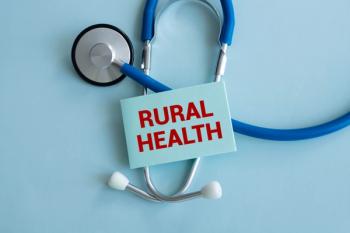
Sign Out: When 'show and tell' is serious medicine
Do you remember bringing something to school for "show and tell" when you were a child? That's what I did recently, only it wasn't a game. I was teaching basic medicine, obstetrics, and gynecology to medical students, lay midwives, and physicians in Liberia.
For every 100,000 live births in Liberia, 780 mothers and 157 infants will die. Those are the highest rates of maternal and child mortality in the world, and 66 and 35 times higher, respectively, than the numbers recorded in the United States. It's just such underserved areas that are served by PRN Relief International (http://
Since 1989, civil strife has caused the deaths of more than 250,000 Liberians and displaced more than 1 million people from their homes and villages. Because of a lack of infrastructure within the country, access to health care is extremely poor, hence the very high rates of infant and maternal mortality. Malaria, diarrhea, acute respiratory infections, neonatal tetanus, measles, and malnutrition are the major causes of death. Life expectancy for women is 38 years because of the risks of childbirth.
Sadly, we witnessed heartbreaking cases that were out of our control. One mother arrived in labor and 10-cm dilated for who knows how long, with an unengaged head on a term fetus. A primipara, she was given pitocin but suffered a ruptured uterus that required an emergency hysterectomy, and her child was stillborn. Of the 50 or so births in one area over a 4-week period, 16 mothers and 9 children died for various reasons, most of which could have been avoided with basic equipment, medications, and education.
We diagnosed Stephens-Johnson syndrome in a 22-year-old woman who was 12 weeks' pregnant. Her original diagnosis was incorrect and she was left in the hospital on antibiotics for 2 weeks. The staff had never heard of the syndrome, and was hampered in making an accurate diagnosis because of the lack of textbooks. (Liberia has no electricity-the hospital is run by generators-and no Internet access.) It took us a day to find IV hydrocortisone and start treatment. The patient was dehydrated and had laryngeal edema, and was very close to death. But we couldn't intubate her because there were no endotracheal tubes or ventilators. She did somewhat better the next day, but was removed from the hospital by her family for some unexplained reason.
Eight years ago I started to serve communities in underserved countries, delivering care and teaching. Since then, I've never felt happier, more fulfilled, or more needed. Word has started to spread at our hospital and in our community about PRN Relief International and more of my colleagues are volunteering to spend their vacations building relationships with communities in need. People have donated money to our cause. I believe that PRN Relief International has raised our collective consciousness about the dire conditions that exist in places like Monrovia, Liberia. With that awareness comes a sense of responsibility for ensuring that the rights of all peoples to health and health care are protected.
Newsletter
Get the latest clinical updates, case studies, and expert commentary in obstetric and gynecologic care. Sign up now to stay informed.









